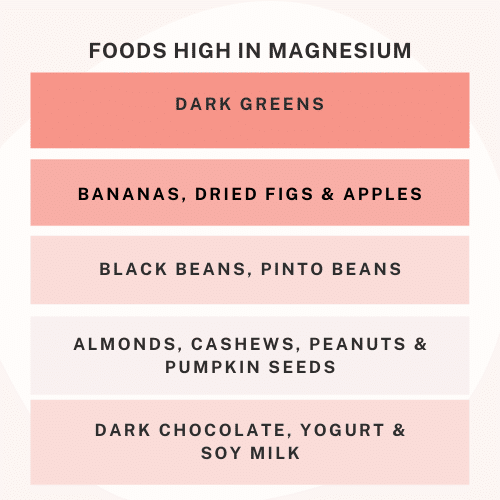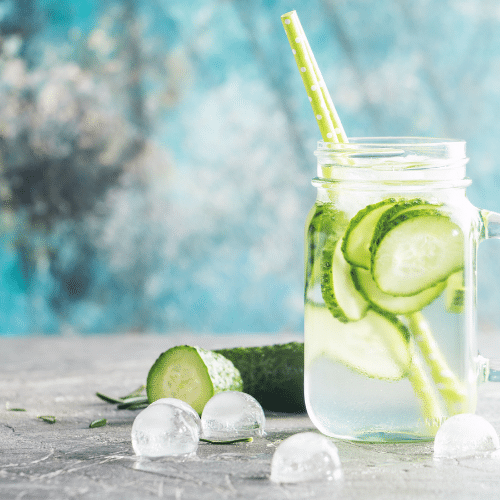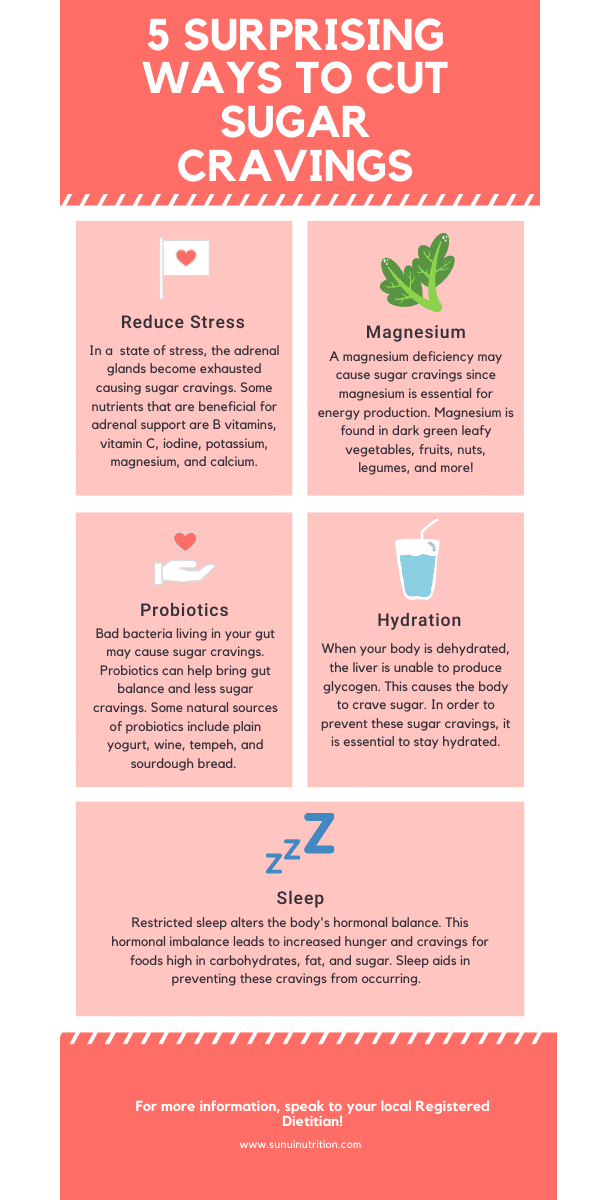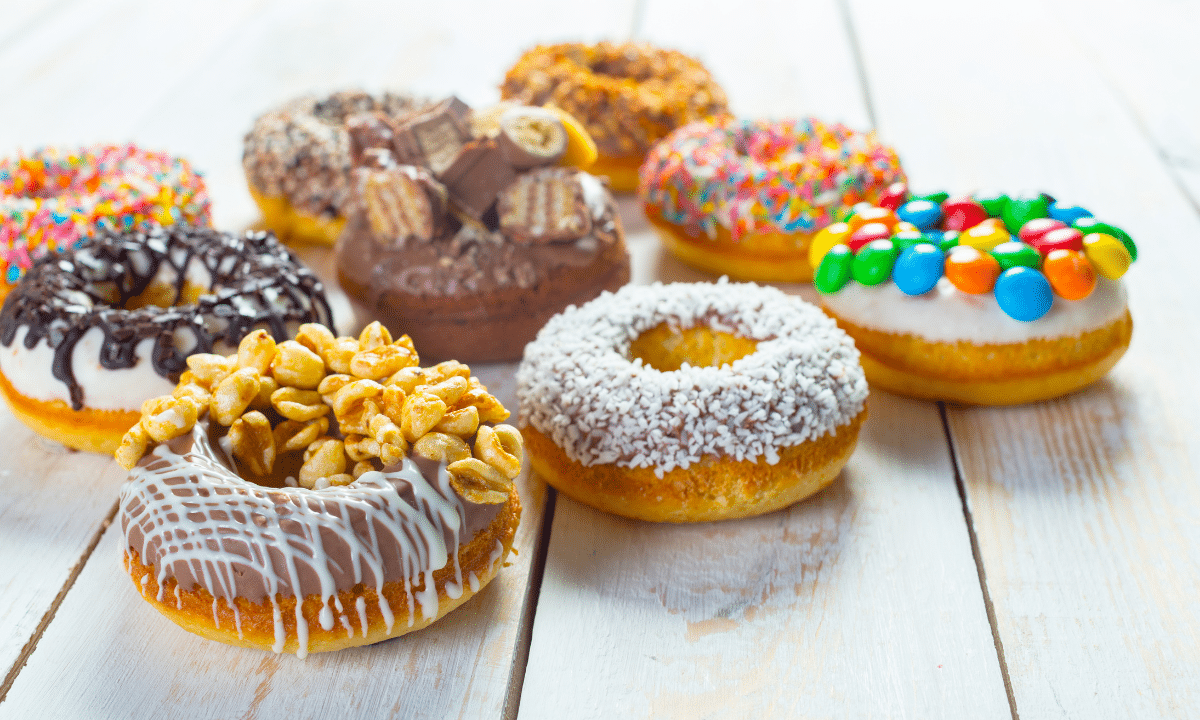5 Surprising Causes of Menopause Sugar Cravings
Do you find yourself with more sugar cravings now than you did in your twenties? You might blame it on menopause.
Table of Contents
ToggleIt is not surprising that menopause sugar cravings are, in part, due to deficiency of estrogen or progesterone ( 1, 2, 3).
Who would have thought that the urge to reach for a chocolate bar was a result of your body compensating to changing hormonal levels! So what else do you need to know about the causes of sugar cravings, and what do you do to manage this?
Causes of Menopause Sugar Cravings

1. Hormonal Imbalance and Menopause Sugar Cravings
Hormone imbalance plays a role in menopause sugar cravings in different ways. For example, changes in the estrogen and progesterone levels can result in changes in the stress hormone, cortisol.
An imbalance of cortisol can lead to high-stress levels which can increase the production of other hormones produced by the adrenal glands. The high production of these hormones can exhaust the adrenal glands, which can cause symptoms such as fatigue, sugar cravings, shakiness between meals, and weight loss resistance. Some nutrients beneficial for adrenal support are B vitamins, vitamin C, iodine, potassium, magnesium, and calcium (4).
In addition, imbalanced cortisol levels can result in poor sleep, which influences sugar cravings. In addition, poor sleep can impact the hormones that regulate hunger and appetite, resulting in weight gain.
Also, estrogen and progesterone levels can affect how your body responds to insulin, which is responsible for regulating blood sugar levels. Then, imbalanced sugar levels can cause sugar cravings.
2. Magnesium and Menopause Sugar Cravings

A magnesium deficiency may manifest in some people as a persistent sugar craving. Magnesium is an essential mineral involved in many systems that regulate life-essential reactions in the body, and one of them is blood glucose control (5).
Some researchers have found an association between magnesium and sugar cravings, especially chocolate -a sweet high in magnesium (6, 7 ).
Furthermore, some people may experience sugar cravings when deficient in this mineral since magnesium is essential for energy production. Therefore, the lack of magnesium in these individuals may result in the craving for sugar which, once processed, becomes the basic energy source for all cells in the body: ATP.
How Much Magnesium do You Need in Menopause?
The recommended dietary allowance (RDA), in other words, the daily intake sufficient to meet the nutrient requirements of 97%-98% of healthy women between 40and 50 years, is 320 mg (5).
While eating foods high in magnesium, you may need a supplement. Some nutritious food sources include dark leafy greens; fruits such as apple, banana, and watermelon; beans and edamame; nuts; fish including halibut and salmon, whole grains; and coca and dark chocolate.
3. Gut Health and Menopause Sugar Cravings
It is no secret that a healthy gut will help you experience fewer sugar cravings, and the answer is straightforward: bad bacteria feed on sugar. Therefore, the more bad bacteria living in your gut, the more sugar cravings you may experience. In fact, Candida Albicans is a yeast that may live in your gut and uses sugar as its form of energy (9).
But how is an excess of bad bacteria like Candida taking over your gut? It could be due to several causes such as an unhealthy diet, incorrect antibiotic use, lack of probiotic consumption, unattended bacterial infections, and chronic diseases such as IBS and IBD, among others.
Probiotics and Sugar Cravings
How can you fix your gut? Fortunately, one thing that can help fix your gut is consuming probiotics. These healthy bacteria can help you fix the dysbiosis (the microbial imbalance) in your gut and bring gut balance and subsequently fewer sugar cravings (10).
Where can you find natural sources of probiotics? You can find probiotics in foods like:
- Kimchi
- Plain yogurt
- Sauerkraut
- Sourdough bread
- Tempeh
Now, it is also essential to consider adopting new lifestyle habits. For example: exercising to release stress, eating intuitively, consuming foods that provide nutritional value, and increasing fiber consumption. All of these can contribute to better gut health.
The process of change takes time and patience. It is recommended to start with making one change at a time to sustain a new and healthy lifestyle.
4. Dehydration and Menopause Sugar Cravings

Sometimes, many people tend to confuse dehydration with cravings.
Many times, the reality is that they do not need to eat that stack of chocolate chip cookies but that they are just dehydrated and need a refreshing cup of water.
The craving/urge that arises is associated with thirst during dehydration. When your body is dehydrated, the liver cannot produce glycogen (the body and brain’s main source of energy). This causes the body to crave sugar because the body is in a state where it needs glucose and water to produce glycogen (11, 12). To prevent these sugar cravings, it is essential to stay hydrated.
According to the U.S. National Academies of Sciences, Engineering, and Medicine, it is recommended that the average adult female should drink about 11.5 cups (2.7 liters) per day (14). This is because people typically get about 20% of their fluid needs from food. However, the rest is dependent on drinking water or water-based beverages.
Other clear physical signs which may indicate that you are dehydrated:
- Dark urine
- Dry mouth, lips, eyes, or skin
- Dizzy or lightheadedness
- Fatigue
- Extreme thirst
- Less frequent urination
- Confusion
Don’t like water alone? Don’t worry! Try adding fruits to your water, such as berries, kiwi, tangerines, cucumber, and lemon slices. You can also try sparkling water!
5. Poor Sleep and Menopause Sugar Cravings

Poor sleep is an uncomfortable symptom that many peri and menopausal women may experience daily. In addition, this lack of sleep may lead to sugar cravings by altering the hormonal balance relating to hunger and appetite.
It has been found that restricted sleep can lead to decreased levels of leptin and increased ghrelin levels. This hormonal alteration will lead to increased hunger and cravings for food. Researchers have found that sleep-restricted people consumed fewer main meals and more snacks that were also high in carbohydrates, fat, and sugar.
The recommended amount of sleep is 7-9 hours. Here are some tips to get better sleep at night:
- Avoid caffeine after 10:00 am
- Limit alcohol
- Create a regular, relaxing nighttime routine
- Create a sleep environment that is dark, quiet, comfortable and cool
- Wear comfortable pajamas
- Put your electronics away at least one hour before going to bed
- Listen to relaxing music or a guided meditation
- Maintain a regular bed and wake up time schedule
- Budget time to sleep
- Foster healthy pro-sleep habits throughout the day

In Conclusion
While establishing these new habits will decrease your sugar cravings, you will gain so much more than that. You will have a healthier mind and body. To succeed, start tackling either one big item such as sleep or a super simple one, like adding more probiotic foods or taking a probiotic supplement. Then, once you get the new habit down, move to the next.
For more ideas about how to reduce sugar cravings read 11 tips to cut menopause sugar cravings.
Don’t forget to celebrate each little success!
Authors
Registered Dietitians Lizeth Cano and Heidi Druehl. Review and Editing by Dr. Su-Nui Escobar.

Dr. Su-Nui Escobar, a Registered Dietitian/Nutritionist in Miami, FL, is dedicated to empowering women in perimenopause and menopause to live healthier, more satisfying lives.
With a doctorate in clinical nutrition from the University of North Florida, she has expertise in menopause and weight loss, including the unique challenges faced by those on weight loss medications.
Su-Nui’s passion for her field is evident in her previous role as the Academy of Nutrition and Dietetics spokesperson.


